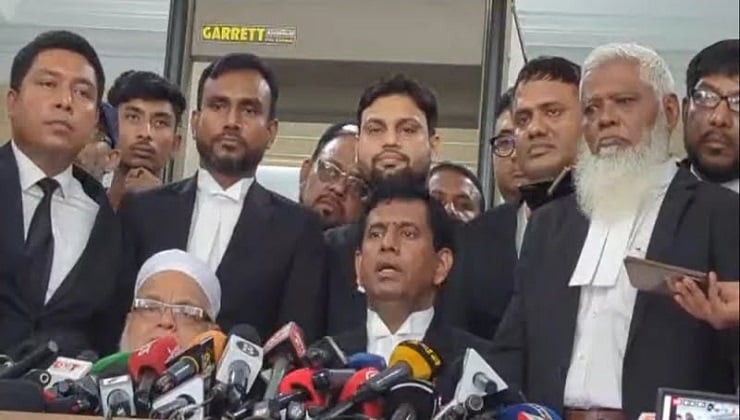
“This Trial Is Not Revenge of the Past, but a Promise for the Future” — Chief Prosecutor

Formal charges have been submitted to the International Crimes Tribunal against former Prime Minister Sheikh Hasina, accusing her of crimes against humanity. On Sunday, June 1, Chief Prosecutor Mohammad Tajul Islam presented a 134-page charge sheet before the three-member tribunal led by Justice Md. Golam Mortuza Mojumder.
During the submission, Tajul Islam stated, “This trial is not about revenge for the past — it is a promise for the future.”
With the tribunal’s permission, proceedings are being broadcast live on Bangladesh Television (BTV).
A day earlier, on Saturday, May 31, Tajul Islam had announced, “By December, the trials for the massacres of July and August will be visibly underway. The trial will be conducted in such a manner that no one can question its integrity or fairness.”
The charges stem from a violent crackdown by Sheikh Hasina’s government on a mass student-led protest movement against systemic discrimination. Nearly 1,500 people reportedly lost their lives during the protests. On August 5, 2024, amid escalating public outrage, Sheikh Hasina’s 15-year rule came to an end.
On August 14, formal allegations of crimes against humanity were filed against her. The investigation officially began on October 14 and was completed in six months and 28 days. On May 12, 2025, the tribunal’s investigation agency submitted a report implicating Sheikh Hasina and two others.
This is the first case filed in the restructured International Crimes Tribunal following the uprising. On December 17, 2024, the tribunal issued an arrest warrant against Sheikh Hasina. Later, former Home Minister Asaduzzaman Khan Kamal and former Inspector General of Police Chowdhury Abdullah Al-Mamun were also named as co-accused.
Following the government's collapse, an interim administration led by Nobel Peace Prize laureate Dr. Muhammad Yunus was established. This interim government reformed the International Crimes Tribunal and prioritized justice for the atrocities committed during the July–August crackdown.
Copyright © 2025 News of truth. All rights reserved.